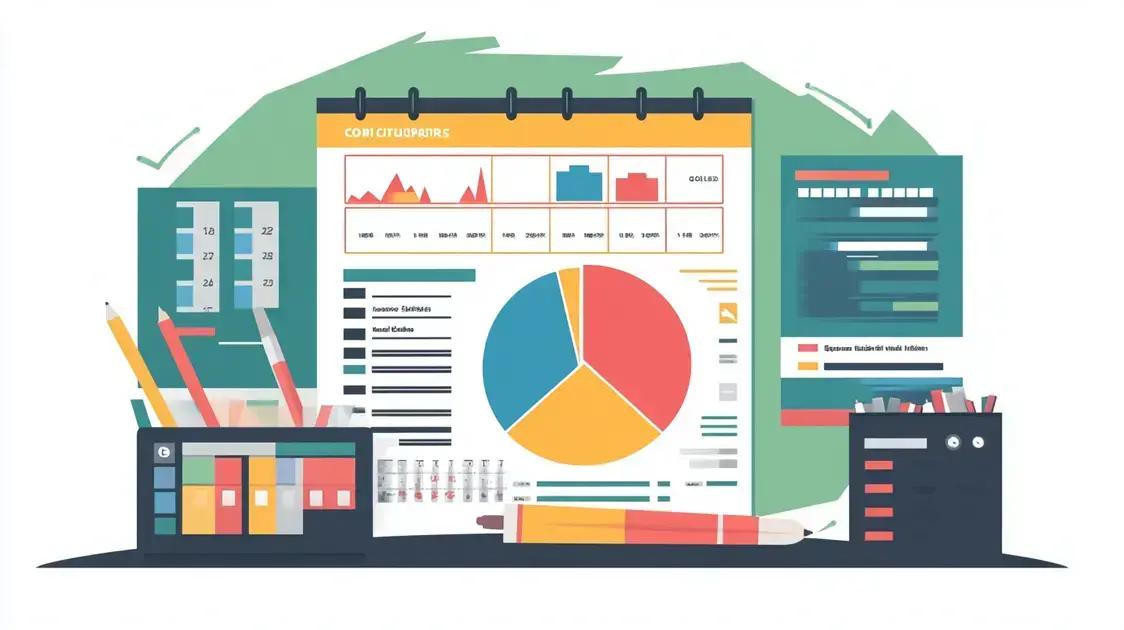Credit score for loans is the first thing lenders look at when deciding whether to approve your application. It tells them how trustworthy you are with money—and it can directly impact your chances of getting approved and the interest rates you’ll receive.
Even though it’s just a number, your score reflects real habits like paying bills on time and managing your credit responsibly. Small, consistent actions can lead to a big improvement in your financial profile.
Want to boost your chances of getting better loan deals? Keep reading—you’re about to learn what really makes a difference.
Understanding Credit Scores
Understanding credit scores is important when applying for loans. A credit score is a number that reflects how trustworthy you are as a borrower.
It ranges from 300 to 850, with higher numbers indicating better creditworthiness. Lenders use this score to decide if they will give you a loan and what interest rate you will pay.
Your credit score is built from various factors. These include your payment history, credit utilization, and the length of your credit history.
Paying your bills on time and keeping your credit card balances low can help improve your score. By knowing these factors, you can take steps to boost your credit health.
Checking your credit score regularly is key to understanding your financial standing. There are many free tools and resources available that let you view your credit score without any cost.
These insights allow you to make informed decisions about your loans and can help you obtain better rates.
Why Credit Scores Matter for Loans
Credit scores matter for loans because they help lenders assess how likely you are to repay borrowed money. When you apply for a loan, banks and other financial institutions will look at your credit score before making a decision. A good score can mean you get approved easily, while a low score might lead to a loan being turned down.
Another reason credit scores are important is that they influence the interest rates you’ll receive. If you have a high credit score, lenders see you as a lower risk. This usually means you will pay a lower interest rate. A lower interest rate can save you a lot of money over time, making your loan more affordable.
Lastly, your credit score can impact other financial opportunities too. Having a decent score helps you get credit cards with better rewards and even rental agreements. By understanding your credit score and maintaining it, you can open doors to better financial options when you need loans.
Factors Affecting Your Credit Score

Factors affecting your credit score include your payment history, which is the most significant one. This means how timely you pay your bills and loans. If you regularly pay on time, your score will be better. However, missing payments or paying late can hurt your score. Consistency is key to maintaining a strong credit history.
Another important factor is your credit utilization ratio. This ratio compares how much credit you are using to your total available credit. Ideally, you should keep this number below 30%. For example, if you have a credit limit of $1,000, try not to use more than $300. Low utilization shows lenders that you manage credit responsibly.
The length of your credit history is also a part of your score. Having older accounts can positively impact your score, as they show a long record of borrowing behavior. Opening new accounts can lower your average account age, which may decrease your score temporarily. This is why it’s often better to keep older accounts open even if you don’t use them much.
How to Improve Your Credit Score
To improve your credit score, start by reviewing your credit report for errors. Look for mistakes such as incorrect account information or late payments you didn’t actually make. If you find any errors, you should dispute them with the credit reporting agency. Correcting these mistakes can boost your score quickly.
Another way to boost your score is by paying down existing debts. Focus on paying off credit card balances first, as high credit utilization can negatively impact your score. Try to make more than the minimum payment each month. This not only reduces your debt faster but also shows lenders that you are responsible with your finances.
Lastly, make sure to pay all your bills on time. Setting up reminders or automatic payments can help you avoid late fees. Consistency in your payments helps build a positive credit history. Over time, these actions will help improve your credit score and open the doors to better loan rates.
Common Myths About Credit Scores
One common myth about credit scores is that checking your own score will lower it. This is not true! When you check your own credit score, it is called a “soft inquiry” and does not affect your score in any way. It is important to regularly check your score to stay informed about your financial health.
Another myth is that closing old credit accounts will improve your score. In reality, closing old accounts can hurt your credit score. The length of your credit history is an important factor in your score. Keeping older accounts open can help show lenders that you have experience managing credit over time.
Many people believe that paying cash for everything will improve their credit scores. However, credit scores are based on your borrowing behavior, not how much cash you have. To build a good score, you need to use credit wisely, such as making small purchases and paying them off on time.
Checking Your Credit Score Effectively

Checking your credit score effectively starts with knowing where to look. You can access your credit score from various sources, including free websites and apps that provide scores without cost. Some banks or credit card companies also offer free access to your score as part of their services. This way, you can keep an eye on your score regularly without any charge.
When you check your score, make sure to look at the factors that contribute to it. Most services will provide a breakdown showing how payment history, credit utilization, and other factors affect your score. Understanding these elements helps you see where you can improve and what actions to take.
Another important aspect of checking your score is knowing how often to do it. It’s good practice to check your credit score every few months. This frequency helps you catch any mistakes or signs of fraud early. By being consistent, you can manage your credit health effectively and be well-prepared for any future loans.
Understanding your credit score is crucial to managing your finances. Your credit score reflects how well you’ve handled borrowing money in the past. It helps lenders decide if they want to give you a loan and what interest rate to charge you. When aiming for better loan rates, knowing your score can empower you to take steps to improve it.
Beyond just knowing your score, it’s important to practice good credit habits. Paying your bills on time, keeping credit card balances low, and checking your credit report regularly are all ways to maintain or increase your score. These actions can contribute to unlocking better loan opportunities in the future.
Finally, understanding what influences your credit score can help you make smarter financial decisions. Factors like your payment history, credit utilization, and the length of your credit accounts play a major role. By focusing on these areas, you can work towards achieving a higher score and securing loans at desirable rates.





